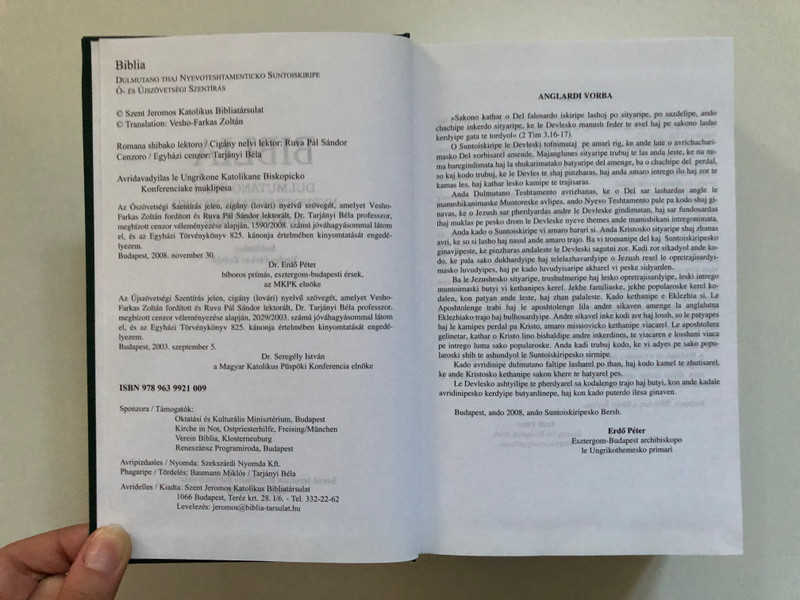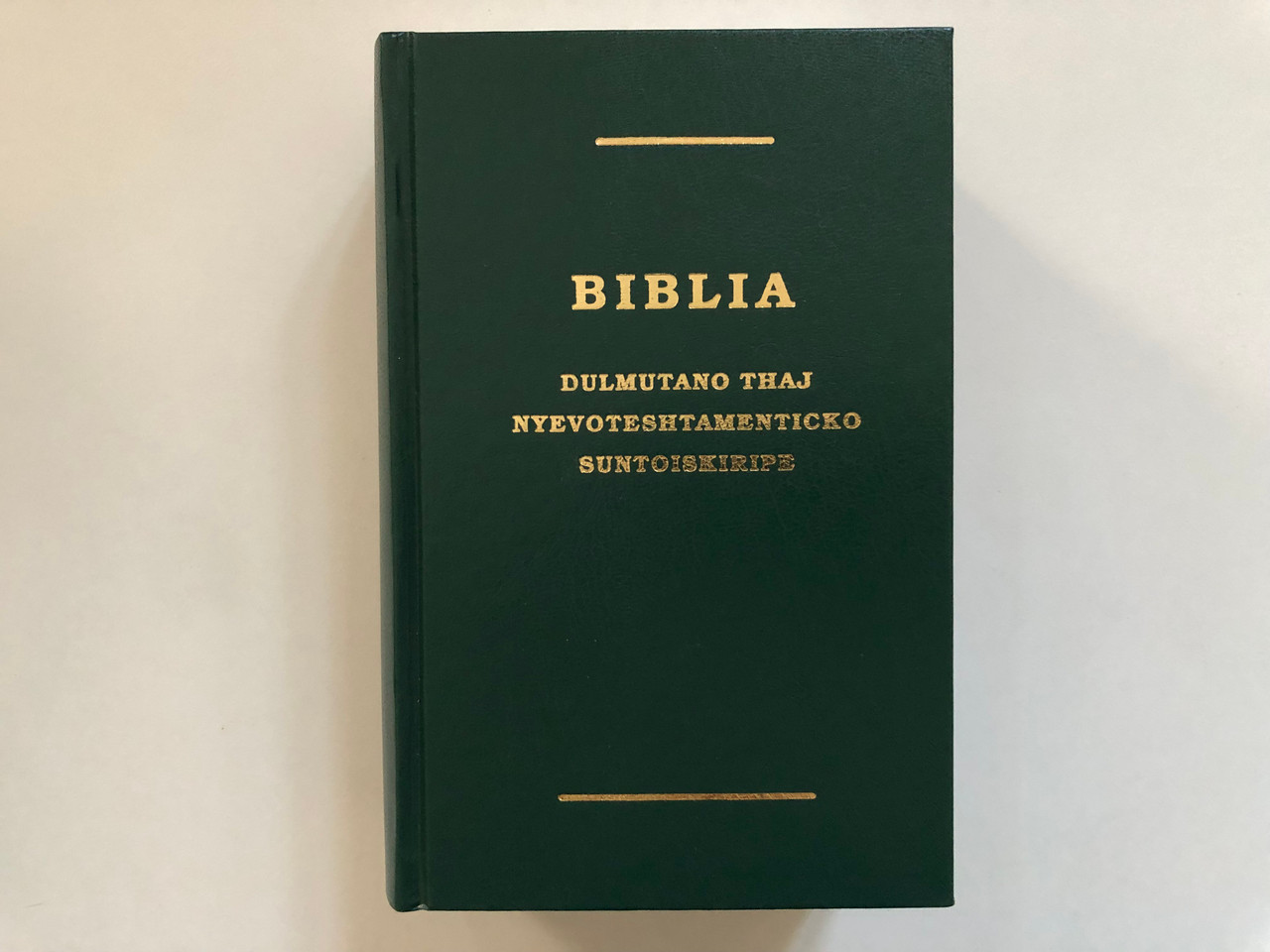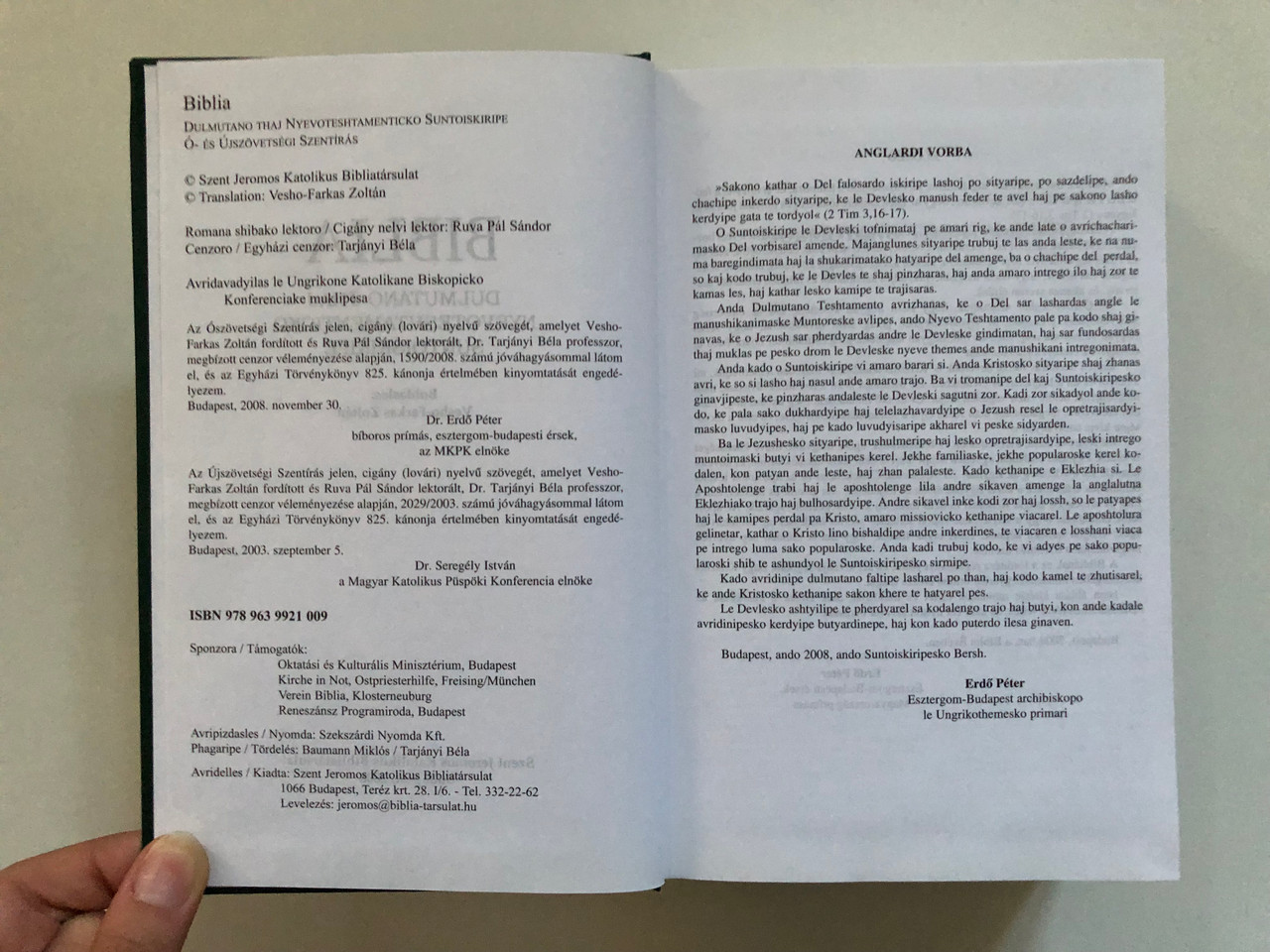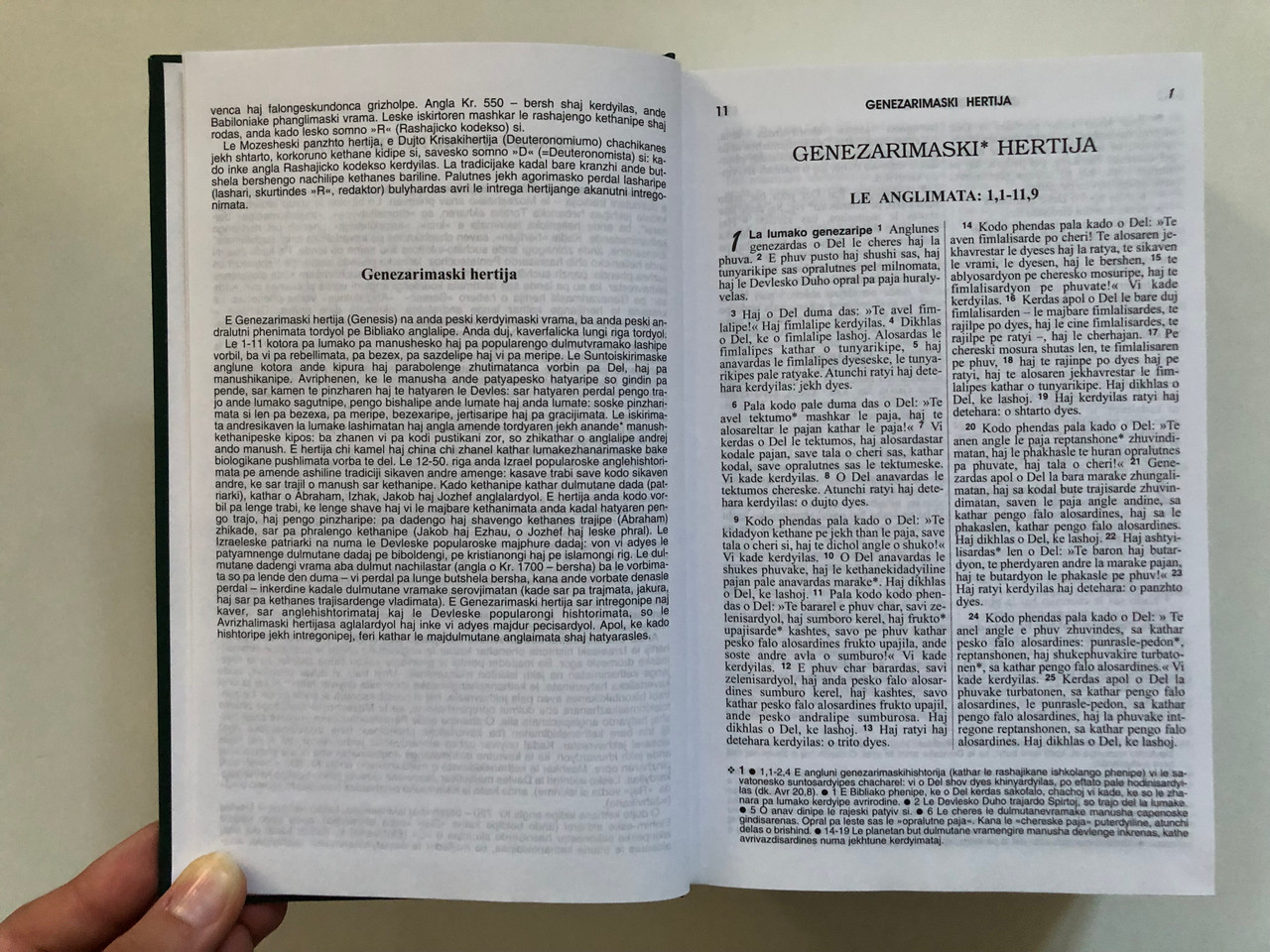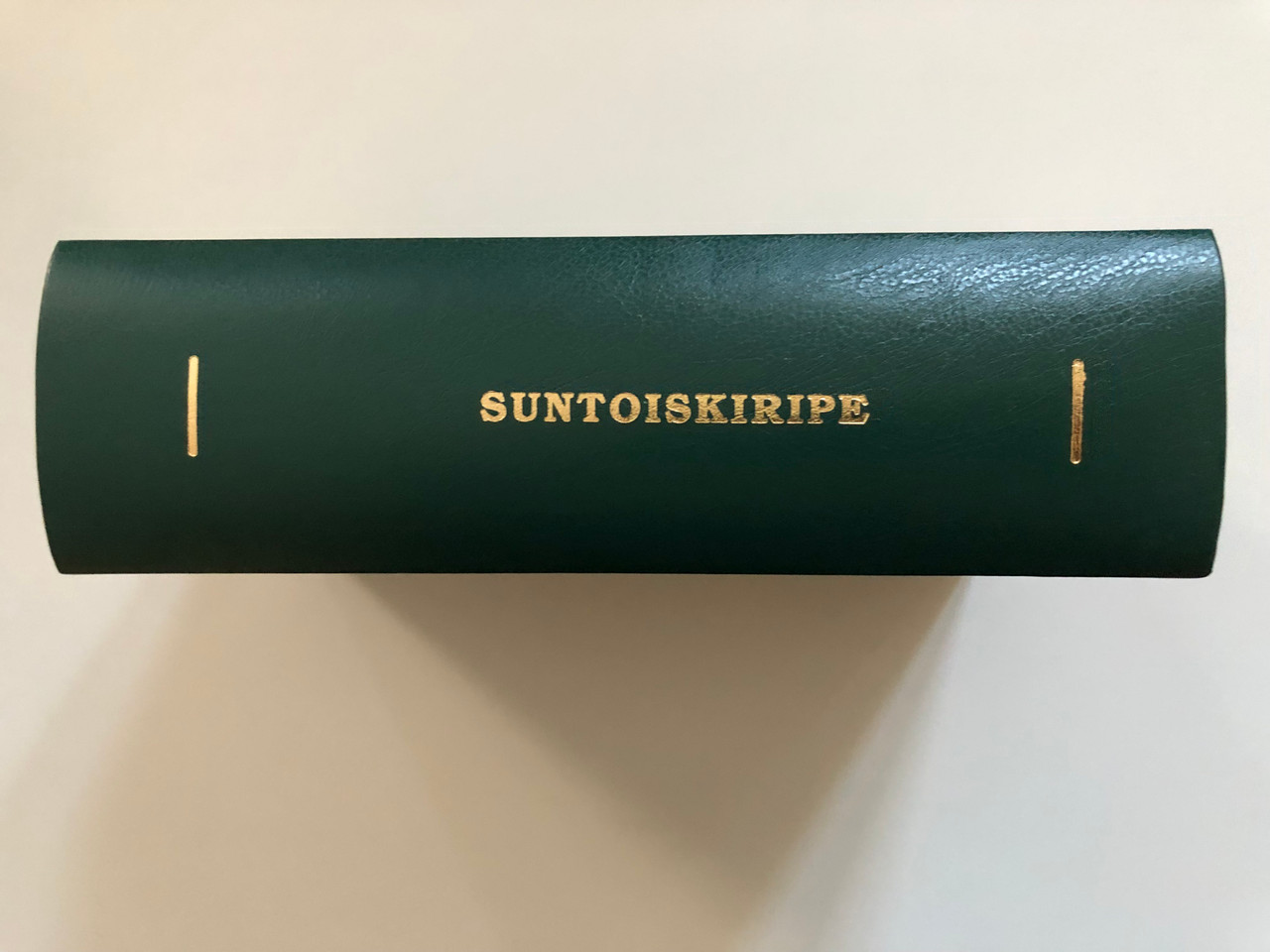Description
Biblia | Holy Bible in Romani (Lovari Dialect)
Product Information
- ISBN: 978-9639921009
- Product Type: Religious Text/Holy Bible
- Language: Romani (Lovari dialect) with Hungarian references
- Format: Hardcover Book
- Publication Date: 2008
- Publisher: Szent Jeromos Katolikus Bibliatársulat (St. Jerome Catholic Bible Society)
- Translator: Vesho-Farkas Zoltán
- Language Editor: Ruva Pál Sándor
- Censor: Dr. Tarjányi Béla
- Ecclesiastical Approval: Dr. Erdő Péter, Cardinal Primate, Archbishop of Esztergom-Budapest
- Target Audience: Romani-speaking communities, particularly Hungarian Roma
Overview
This landmark publication presents the complete Holy Bible (Old and New Testaments) translated into the Lovari dialect of the Romani language. Titled "Dulmutano Thaj Nyevoteshtamenticko Suntoiskiripe" in Romani, this Bible represents a significant cultural and religious achievement for the Roma community. Translated by Vesho-Farkas Zoltán and edited by linguist Ruva Pál Sándor, the text received ecclesiastical approval from Cardinal Péter Erdő of the Hungarian Catholic Bishops' Conference. The publication aims to make sacred scripture accessible to Romani speakers in their native language, bridging an important gap in religious literature. This edition includes both the Old Testament (approved in 2008) and the New Testament (previously approved in 2003), creating a complete biblical resource for Romani-speaking Christians.
Product Features
- Complete Translation: Full Bible in the Lovari dialect of Romani
- Dual Approval: Contains both Old Testament (approved 2008) and New Testament (approved 2003)
- Linguistic Guidance: Includes pronunciation guide for Romani language sounds
- Ecclesiastical Authorization: Officially approved by the Hungarian Catholic Church
- Cultural Sensitivity: Respects both Roma traditions and Catholic biblical scholarship
- Bilingual Elements: Contains Hungarian explanations and approvals alongside Romani text
- Typography: Clear, readable font appropriate for study and liturgical use
- Historical Significance: One of the first complete Bible translations in this Romani dialect
- Pastoral Purpose: Designed for use in religious education and worship in Roma communities
- Professional Layout: Text formatting by Baumann Miklós and Tarjányi Béla
Interesting Facts
Linguistic Achievement
This Bible represents a monumental linguistic achievement, as translating sacred texts into Romani presented unique challenges. The Lovari dialect, spoken primarily by Roma communities in Hungary and surrounding regions, had limited written tradition prior to this project. Translator Vesho-Farkas Zoltán and editor Ruva Pál Sándor had to carefully develop theological vocabulary that would accurately convey biblical concepts while remaining authentic to Romani language patterns. The book includes a detailed pronunciation guide explaining the phonetic characteristics of Romani, including sounds not found in Hungarian such as aspirated consonants (kh, ph, th), the specific "x" sound (similar to German "ch"), and the soft "ly" sound comparable to sounds in Slovak, Spanish, and Italian. This linguistic framework establishes standards for written Romani religious texts.
Cultural Bridge
The publication of this Bible represents a significant bridge between Roma cultural identity and Christian tradition. Historically, many Roma communities have practiced Christianity while maintaining distinct cultural expressions of faith. This translation acknowledges and validates the cultural and linguistic identity of Roma people within their religious practice. The foreword by Cardinal Péter Erdő emphasizes that the Scripture should be accessible in every language, enabling all people to feel at home in the Christian community. He notes that Jesus' teachings, crucifixion, and resurrection create a unified family and community (referred to as "Eklezsia" in the text) across different peoples and languages. This validation of Romani as a language worthy of sacred texts carries profound significance for a people who have often faced discrimination and marginalization.
Collaborative Support
The creation of this Bible was made possible through remarkable ecumenical and international cooperation. The colophon reveals a diverse group of supporters including the Hungarian Catholic Bishops' Conference, the Hungarian Ministry of Education and Culture, the international Catholic charity "Kirche in Not" (Aid to the Church in Need) based in Germany, the Austrian Biblical association "Verein Biblia" from Klosterneuburg, and Hungary's Renaissance Program Office. This broad coalition demonstrates the significance placed on making sacred texts accessible to the Roma community. The project represents not merely a religious text but an affirmation of cultural dignity and inclusion within both religious and national communities, acknowledging the Roma people's right to access foundational texts in their native language.
Spiritual and Educational Purpose
The introduction to the Bible, presented in Romani, emphasizes that "all Scripture inspired by God is useful for teaching, for correction, for instruction in righteousness" (referencing 2 Timothy 3:16-17). It explains that Scripture is God's message to humanity, teaching not only "greatness and beauty" but the truth necessary to know God and to love Him with "genuine hearts and strength." The text emphasizes that through Jesus' teachings, readers can discern what is good and evil in their lives. This practical spiritual purpose reflects the translator's intention to create not just a cultural artifact but a living text that serves the spiritual and moral education of Roma communities, offering guidance, hope, and cultural affirmation through sacred scripture in their native tongue.
Publishers
Published by Szent Jeromos Katolikus Bibliatársulat (St. Jerome Catholic Bible Society), Budapest, Hungary in 2008. The book was printed by Szekszárdi Nyomda Kft with layout by Baumann Miklós and Tarjányi Béla. The publication received support from various organizations including the Hungarian Catholic Bishops' Conference, the Hungarian Ministry of Education and Culture, Kirche in Not (Germany), Verein Biblia (Austria), and the Renaissance Program Office (Budapest).
We value your feedback! Share your experience with this product to help others make informed decisions. Your review is important to us!
Hashtags
#RomaniBible #LovariDialect #RomaCulture #BiblicalTranslation #CatholicBible #HungarianRoma #SacredTexts #MinorityLanguageScripture #RomaniLiterature #CulturalHeritage




